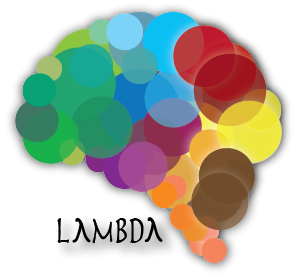Home page
Welcome to the LAMBDA Website
Welcome to our new project website for the Longitudinal Analysis of Mathematical Brain Development and Abilities study. This is a joint project between the Educational Neuroscience Lab and the MELD Lab. We’re currently in Year 3 of the study and are excited to have you as part of our community!
Our projects examine a number of questions about fractions, including:
Why are fractions so hard to learn?
What brain systems might support fraction learning?
How do these systems develop in schoolchildren?
The Longitudinal Analysis of Mathematical Brain Development and Abilities (LAMBDA) Learning Community is investigating the development of fraction knowledge in children. Knowledge of fractions and mathematical competence are important determinants of life chances in modern society and are even known to impact educational, employment, and health outcomes. Despite the importance of fraction knowledge, children and adults often encounter considerable difficulties understanding fractions.
To better understand how basic perceptual abilities rooted in the human brain support the learning and use of fractions, we are following children from 2nd to 5th, and 5th to 8th, grade in a four-year longitudinal study. Children come in to our lab 2-3 times/year and complete a variety of tasks and standardized tests, most of which assess their reading, math, and spatial skills as well as other “higher end” cognitive functions, like memory and attention. Additionally, some kids participate in a (functional) MRI scan each year.
As part of the LAMBDA Learning Community participants will:
- Get their brain scanned by an fMRI machine! (see the “Brain Imaging” page for more info)
- Fill out computer surveys and questionnaires!
- Contribute to important research questions!
- Receive semi-annual e-Newsletters and updates!
- Attend family fun events with other participating families!
The results of this study may provide new insights into 1) the nature of human number processing, 2) the mechanisms by which fractions instruction has its effects, and 3) key individual differences that can help deepen our understanding of math learning difficulties and the potential for their remediation. By better understanding the origins of difficulties with fractions, we aim to improve math skills and life outcomes that depend on fractions understanding.
